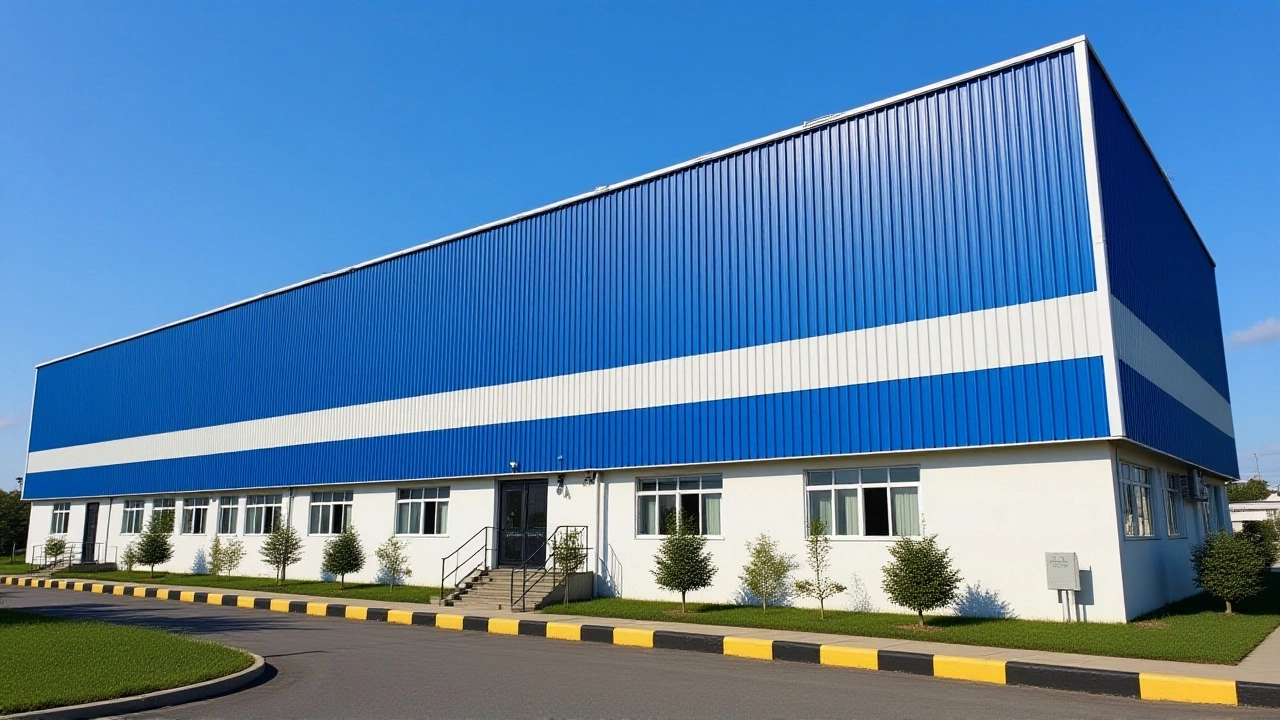
When Tenneco Clean Air India Ltd opened trading on the National Stock Exchange (NSE) at ₹505 on Wednesday, November 19, 2025, it didn’t just list — it announced itself as a force. The stock, priced at ₹397 in its IPO, surged 27.2% on its first day, a rare and emphatic signal from investors who clearly see something lasting in the company’s clean-air systems. By midday, it hit ₹576 — a 45% jump from the IPO price — before settling at ₹515, still up nearly 30%. At closing, its market cap stood at ₹20,604 crore. That’s not just a win. It’s a statement.
Even before listing, the grey market was buzzing. Unlisted shares were trading at a premium of ₹104 — implying a ₹501 opening. The actual ₹505 debut beat that. And the anchor investors? They locked in ₹1,080 crore before the IPO even opened. Names weren’t disclosed, but their commitment spoke louder than any press release.
What’s fascinating is the timing. As electric vehicles rise, the internal combustion engine isn’t disappearing — it’s evolving. Hybrid vehicles still need sophisticated emission controls. Even in EVs, some auxiliary systems require similar components. Tenneco’s tech isn’t obsolete; it’s adapting. And investors noticed.
“It’s not about being the biggest player,” said one Mumbai-based fund manager who requested anonymity. “It’s about being the most reliable one in a space where regulations are tightening and margins are thin. Tenneco has the global R&D backing. That’s rare in India’s auto-components sector.”
Compare this to other 2025 IPOs: Zomato opened at a 50% premium in 2021 but struggled to hold gains. Paytm cratered after listing. Tenneco’s debut, by contrast, feels more like a foundation being laid — not a fireworks show.
For suppliers, it sets a benchmark. For regulators, it shows that environmental compliance can be profitable. For investors, it proves that niche industrial plays — not just consumer apps — can command premium valuations.
One thing’s clear: the market has bet on clean air. And for now, it’s willing to pay for it.
The 27% premium reflects investor confidence in the company’s long-term earnings potential, not just the IPO structure. Since it’s a subsidiary of a global leader with proven tech, buyers were betting on future profitability from emission control demand — not new capital. The 59x oversubscription showed intense demand for a rare, high-quality industrial play in India’s auto sector.
The proceeds went entirely to the five promoter entities: Tenneco Mauritius Holdings Ltd, Tenneco (Mauritius) Ltd, Federal-Mogul Investments BV, Federal-Mogul Pty Ltd, and Tenneco LLC. These are all part of the US-based Tenneco Group. No new equity was issued, so the company itself didn’t receive any funds — only the existing shareholders did.
It signals that global standards are driving local investment. As India moves toward Bharat Stage VI and prepares for future norms, companies like Tenneco Clean Air India become critical enablers. Their success proves that compliance isn’t a cost center — it’s a scalable business. This could attract more foreign tech firms to set up manufacturing here.
The valuation is now rich by historical standards for auto-component firms, but not unreasonable given global demand for emission tech. With global emission norms tightening and hybrid vehicles still needing advanced filters, Tenneco’s margins could hold. But short-term volatility remains likely. Long-term investors should watch order books and export growth, not just the opening pop.
The ₹1,080 crore raised from anchor investors — though their names weren’t disclosed — acted as a strong signal of institutional confidence. When big funds commit before listing, it reduces perceived risk for retail investors. This pre-listing backing likely triggered the massive retail subscription and helped stabilize the opening price.
Unlike most Indian auto-component firms that focus on low-cost manufacturing, Tenneco Clean Air brings global R&D, proprietary tech, and direct ties to OEMs like BMW, Ford, and Toyota. Its market cap of ₹20,604 crore already surpasses many mid-sized Indian auto suppliers, making it one of the most valuable pure-play emission control firms in the country.